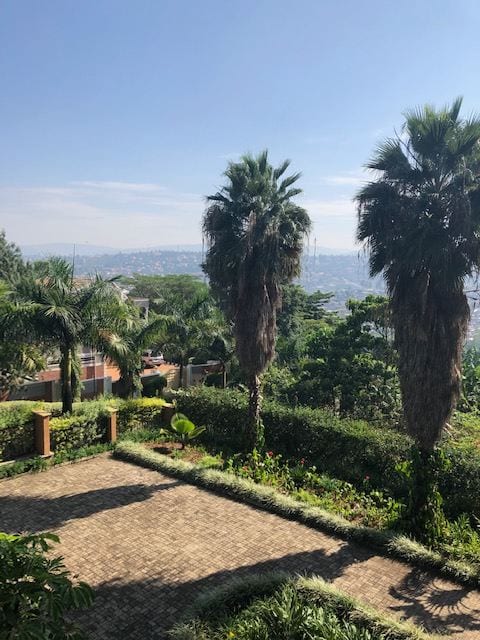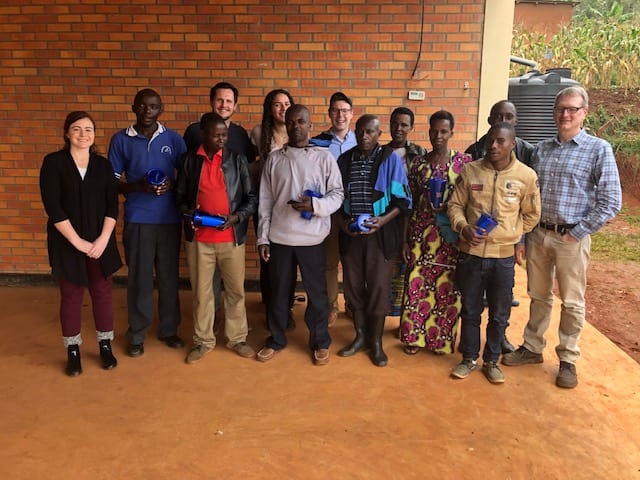Blog post written by Drew Otto, GMBA '20
The U.S. could use some umuganda these days. Known as ‘community work day’, the last Saturday of every month is dedicated time for all Rwandans to come together and improve the environment. The tasks may vary but public transportation halts and everyone, even President Kagame, is expected to trim the bushes or clean the streets. It has paid off. I was shocked by the cleanliness when we arrived at the Kigali airport.
Young palm trees lined the median of the smooth streets as I taxied to our hotel. The green fronds reminded me of my years living in Los Angeles except that the pristine sidewalks were litter-free. The more we travel across Kigali’s lush hills, visiting the Ministry of Agriculture, Rwanda Development Board, and a world-class processing plant, the more I realize the power of community involvement. It’s not only the streets that have been cleaned up, but the economy as well.

Rwanda’s GDP grew an impressive 7.5% last year and our work with local cooperatives should contribute to that rate. The country may lack natural resources, but with a population of 12 million, its small size is conducive for aligning initiatives. Ninety-five percent of Rwandans have 4G coverage, roughly ten percent more than most U.S. carriers, and the country is positioning itself to be one of Africa’s business and tech hubs, modeling its plans on countries like Singapore and Hong Kong. Halfway through the trip however, we rode several hours over paved and bumpy, dirt roads to the rural hillsides of Kibungo. We visited our cooperative and saw just how much catching up the villages need to do to match the development of its capital city.

The wet season brought short but heavy rains as we arrived at our cooperative for a day of research and financial analysis. Our translator fielded questions as we learned the challenges of growing maize and beans. Climate change, rodent-borne disease and a lack of resources are several of the many challenges faced by the farmers and executive board. Our work, to improve and recommend our coops for investment, is at the mercy of many external factors and the complexities of agribusiness are exacerbated in a country still developing its infrastructure and building capacity. Defining ‘investment ready’ is difficult when financial statements are in kinyarwanda and our translator has constantly been critical in helping us prepare our memorandum.
Yet, even at our small cooperative tucked away in the hills, there was no litter to be found. Children wave as we drive by and the feeling of pride and community remains strong everywhere we go. The spirit of umuganda is both inspiring and effective and I continue to doubt if we have anything comparable back home in the states.

